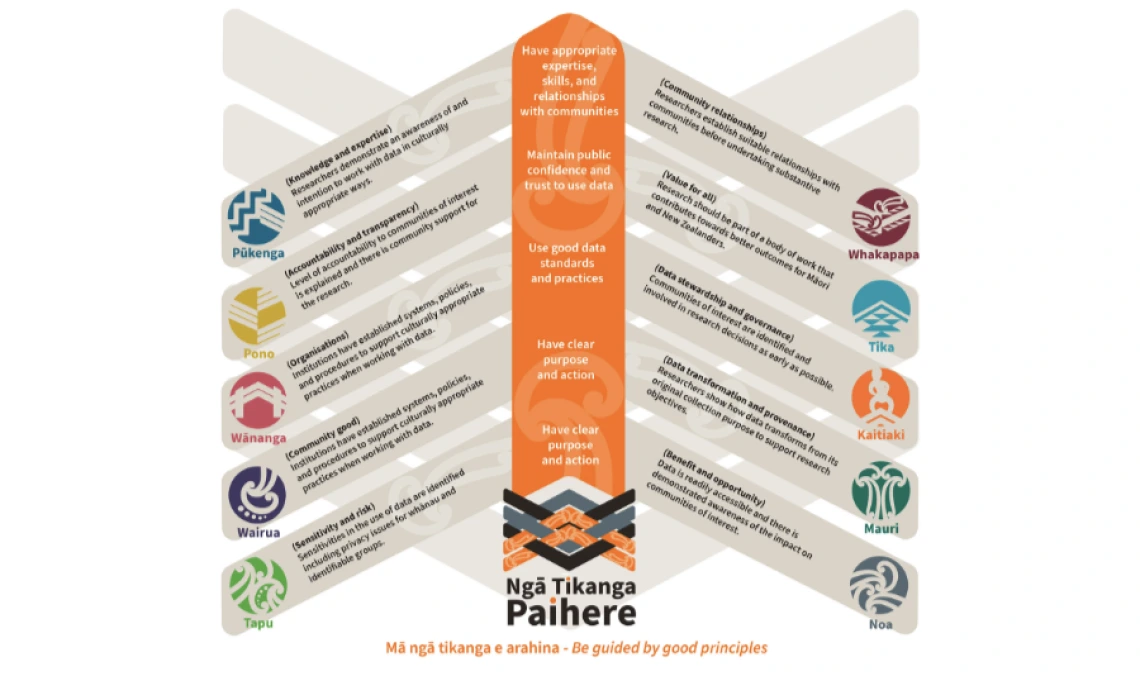Aligning policy and practice to implement CARE with FAIR through Indigenous Peoples’ protocols

In 2019, members of the Global Indigenous Data Alliance (GIDA) published the CARE Principles (Collective Benefit, Authority to Control, Responsibility, and Ethics) for Indigenous Data Governance (IDGov). CARE has since been referenced, leveraged, and adopted in various ways across disciplines and sectors worldwide. In this article, GIDA members from Aotearoa New Zealand, Australia, Canada, and the United States share examples of IDGov models that predate and emerged after the development of CARE. Together, we reflect upon the affordances and limitations of the broad uptake of CARE. We argue that renewed attention is needed to the original intent of CARE: to direct data actors to local communities’ protocols and frameworks for IDGov, and to transform institutional policies and practices to fortify Indigenous Peoples’ authority to control their data.
Citation
Taitingfong, R., Martinez, A., Hudson, M., Lovett, R., Maher, B., Prehn, J., … Carroll, S. R. (2024). Aligning policy and practice to implement CARE with FAIR through Indigenous Peoples’ protocols. Acta Borealia, 41(2), 80–90. https://doi.org/10.1080/08003831.2024.2410112

